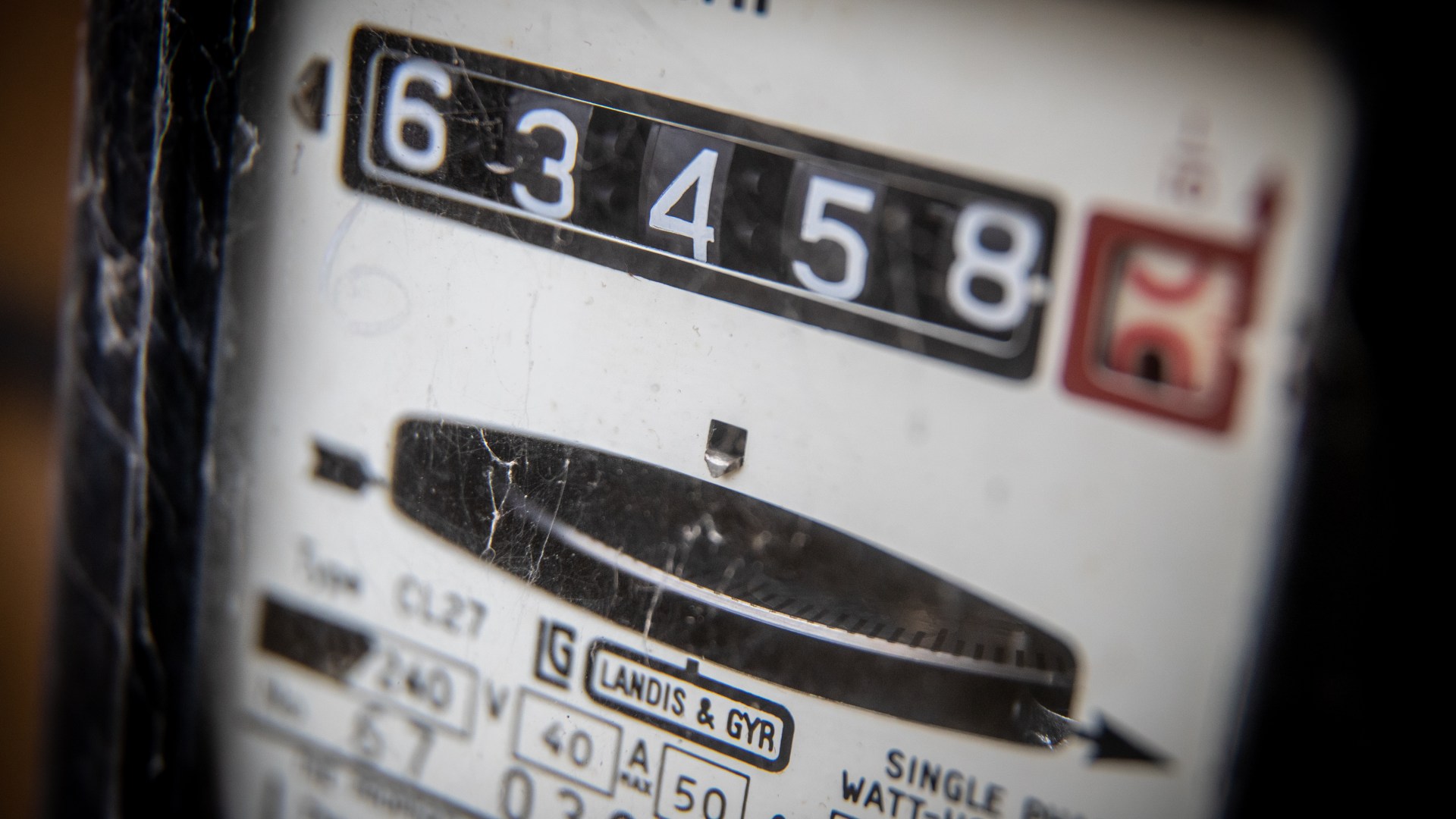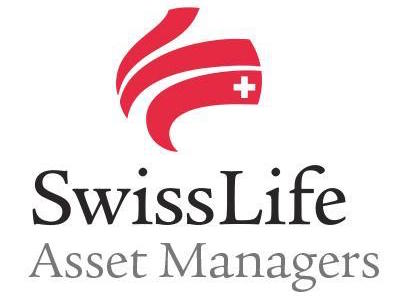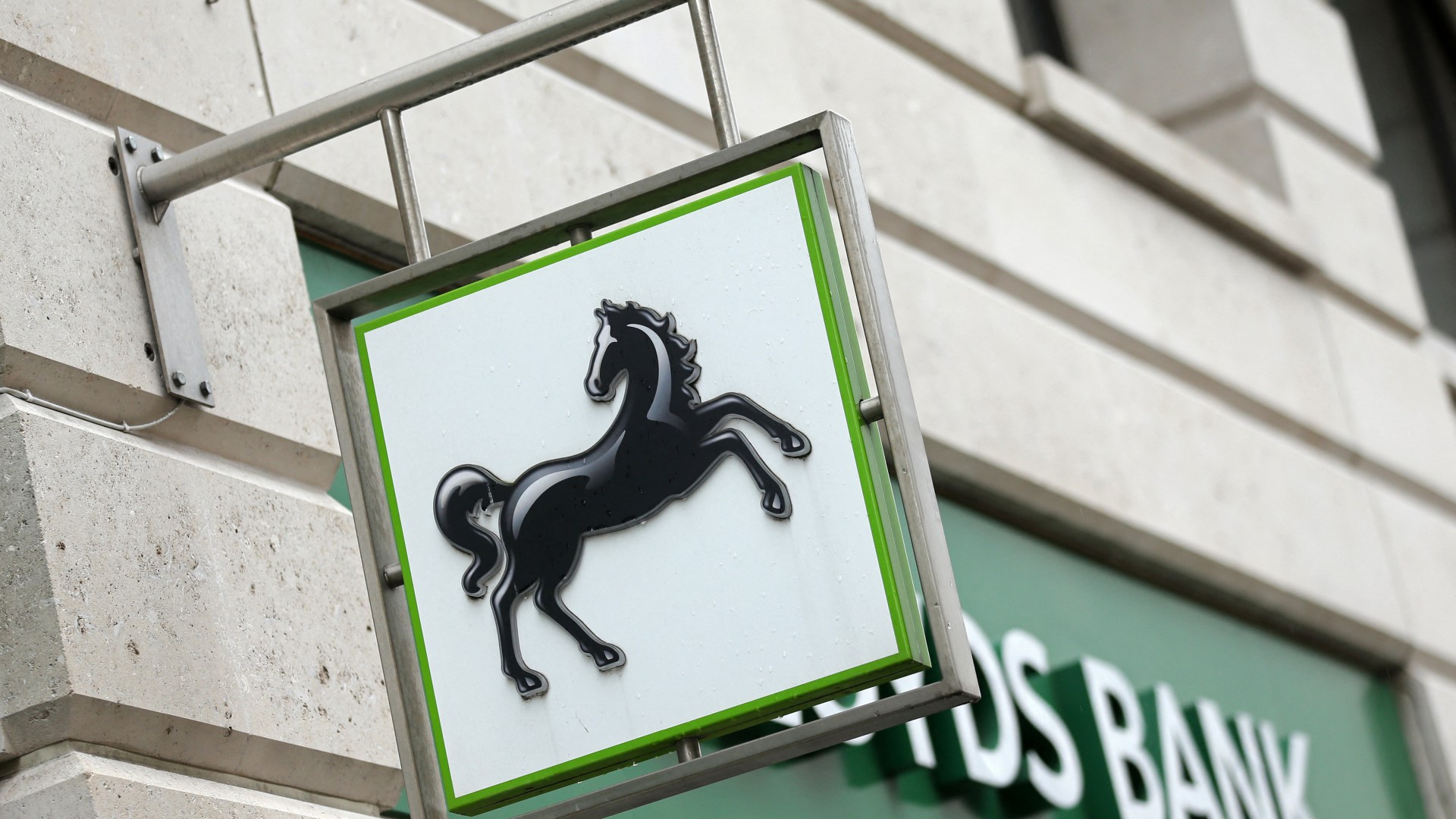Money
FCA secures first conviction for crypto ATM operation


The Financial Conduct Authority has secured its first conviction for illegal crypto ATM operation in the UK.
Olumide Osunkoya pleaded guilty to five offences at Westminster Magistrates’ Court on Monday (30 Sept).
Osunkoya, 45, was also convicted for using false documents and possession of criminal property.
The regulator alleged that Osunkoya operated a network of at least 11 crypto ATMs that processed more than £2.6m in crypto transactions between 29 December 2021 and 8 September 2023.
During that period, he acted as a director of a company named Gidiplus Ltd and later as a sole practitioner.
It was also alleged that Osunkoya, the first person to be prosecuted for illegally operating crypto ATMs, completed no customer due diligence or source of funds checks on those who used his crypto ATMs located in local convenience shops across the country.
The court heard that those likely committing money laundering or tax evasion were using his machines. Osunkoya is suspected to have made substantial profit from the operation.
Crypto ATMs are machines that allow customers to buy or convert money into cryptoassets. There are currently no legal crypto ATM operators in the UK.
The court also heard that Osunkoya created a false alias to try and evade FCA rules.
Sentencing for the offences will take place at Southwark Crown Court at a date to be confirmed.
Money
Exact date millions of energy customers must submit meter readings for major suppliers as energy price cap rises TODAY

ENERGY bills will rise for millions of households from today as the new price cap comes into effect.
The cap rose by 10%, adding £149 a year to the typical bill of a household with a dual fuel tariff which pays via direct debit.
Households will now pay £1,717 a year for their energy, up from £1,568 under the previous threshold.
But energy bills are expected to fall again to £1,697 a year in January, according to the latest predictions from analysts Cornwall Insight.
These thresholds are used to show how much a typical family could expect to spend on their energy bill each year.
But the amount they will actually pay each month will depend on their usage and can be higher or lower than this cap.
Read more on energy bills
The threshold applies to the 28million households who are on a standard variable tariff, which fluctuates with the wholesale price of energy every three months.
Some households are on a fixed tariff, which means the rate they pay stays the same for their whole contract and is not subject to the cap.
To avoid being charged more than you should it’s essential that you submit a meter reading as soon as possible when the price cap changes.
Doing so ensures that all of the energy you used before October 1 is charged at the lower rate.
The exact date you need to submit a meter reading by differs depending on your supplier and some will allow you to backdate the reading to the date it was taken.
Some providers will even give you an extra fortnight to send in your reading.
But if you miss the deadline and do not submit a reading then you will be given an estimated bill.
These bills are calculated based on a prediction of your power use.
This could mean that some of the energy you used before the new cap came into effect could be charged at the wrong rate.
As a result you could receive a bill that is more than the amount you should actually need to pay.
Here we reveal the exact dates that you need to submit a meter reading to each supplier as the energy price cap changes.
When to submit your meter reading
You should try to take your meter reading as close to October 1 as possible to reflect your energy use up until this point.
Once you have taken the reading you have a certain period of time to submit it to your supplier.
The amount of time you have will depend on who your energy provider is.
British Gas customers have until October 14 to send in a reading and can do so online, via its app, web form or by telephone.
Households which are supplied by EDF have until October 9 to send in their meter reading online, via its app, online form, email, WhatsApp, text or over the phone.
E.on Next customers have a week from today to submit their reading and can do so in their online account, via its app, email or by telephone.
Octopus Energy users also have until October 8 to send in their reading and need to do so online, via its web form, app or by email.
At Ovo Energy you can send in your reading in your online account, via its app or over the phone and need to do so by October 11.
Scottish Power customers need to submit their reading by October 5 and can do so through their online account, via its app or by telephone 24 hours a day.
There is no deadline to submit a meter reading at So Energy but you can do so if you have proof of the date you took it.
You can submit it in your online account, by email or by telephone 24 hours a day.
Finally, Utility Warehouse customers needed to give a reading in the five days leading up to October 1 and submit it in their online account, through its app or by telephone.
How to submit a meter reading
The easiest way to take a meter reading is to take a picture of your gas and electricity meters so that you have evidence in case you need to dispute a bill.
You can submit your reading online via your energy account.
Some providers will also let you send in the figures by text or through an app.
Check the options that are available with your own supplier.
Electricity meters
If you have a digital electricity meter, you will see a row of six numbers – five in black and one in red.
Only take down the five numbers in black.
If you are on an Economy 7 or 10 tariff, which gives you cheaper electricity at night, then you will have two rows of numbers and you need both.
If you have a traditional dial meter you will need to read the first five dials from left to right, again you do not need the red ones.
If the pointer is between two numbers, write down the lower figure.
If it is between nine and zero then write down the number nine.
What energy bill help is available?
THERE’S a number of different ways to get help paying your energy bills if you’re struggling to get by.
If you fall into debt, you can always approach your supplier to see if they can put you on a repayment plan before putting you on a prepayment meter.
This involves paying off what you owe in instalments over a set period.
If your supplier offers you a repayment plan you don’t think you can afford, speak to them again to see if you can negotiate a better deal.
Several energy firms have grant schemes available to customers struggling to cover their bills.
But eligibility criteria varies depending on the supplier and the amount you can get depends on your financial circumstances.
For example, British Gas or Scottish Gas customers struggling to pay their energy bills can get grants worth up to £2,000.
British Gas also offers help via its British Gas Energy Trust and Individuals Family Fund.
You don’t need to be a British Gas customer to apply for the second fund.
EDF, E.ON, Octopus Energy and Scottish Power all offer grants to struggling customers too.
Thousands of vulnerable households are missing out on extra help and protections by not signing up to the Priority Services Register (PSR).
The service helps support vulnerable households, such as those who are elderly or ill, and some of the perks include being given advance warning of blackouts, free gas safety checks and extra support if you’re struggling.
Get in touch with your energy firm to see if you can apply.
Gas meters
If you have a digital metric gas meter showing five numbers and then a decimal place, you only need to write down the first five numbers.
If you have a digital imperial meter, your meter will read four black numbers and two red numbers – note down the four black numbers only.
If you have a dial gas meter, follow the same steps as the dial electricity meter.
Smart meters
If you have a smart meter then you do not need to submit a reading as this is taken automatically and is sent to your supplier directly.
But you should check that your smart meter is in “smart mode” and is working properly to make sure that you are accurately charged.
You do not need to submit a meter reading if you have a fixed energy tariff or a traditional prepayment meter.
Do you have a money problem that needs sorting? Get in touch by emailing money-sm@news.co.uk.
Plus, you can join our Sun Money Chats and Tips Facebook group to share your tips and stories
Money
Swiss Life Asset Managers UK appoints new chair

Jenny Buck has more than 30 years’ experience in investment management. Her career has also included senior roles at Schroders and non-executive experience in the real estate sector.
The post Swiss Life Asset Managers UK appoints new chair appeared first on Property Week.
Money
Hang Seng ‘performed better’ during 2024 than S&P 500


The Hang Seng index has “performed better” than S&P 500 so far this year, according to Legal & General Investment Management (LGIM) chief investment officer Sonja Laud.
Speaking yesterday (30 September) at LGIM’s Autumn Horizons Event, Laud explained how the market-capitalisation-weighted stock market index in Hong Kong had outdone the US stock market tracking index.
She also added that investors have seen “more weakness” in the Magnificent Seven, a group of highly performing US stocks.
The Magnificent Seven consists of Alphabet, Amazon, Apple, Meta, Microsoft, NVIDIA and Tesla.
She described growth as “reasonable” but inflation is on track with central banks.
Laud also predicts a mediocre rest of the year in terms of markets, with a “slight boost” next year.
In regards to the upcoming US election on November 5, Laud believes the market will see a bigger impact if the Democrats or Republicans take control of both the House of Representatives and the Senate.
The November election still has the ability “to shift the narrative”, but there is an assumption that Trump will continue his trend of tax cuts if he wins the election.
Focusing more on the UK, Laud said she does not envy Chancellor Rachel Reeves, especially since a new government’s first budget receives a lot of scrutiny.
She added that, overall, “the better the UK economy is doing the more interesting the investment story will be”.
In April 2024, SimplyBiz announced that LGIM’s model portfolio service would be the latest addition to its risk-controlled investment solutions range.
This helps advisers identify the best solution to meet clients’ investment objectives in line with their risk profile by aligning the investment solution to the advice and research process within the Engage system.
SimplyBiz director of distribution services Rodger Baillie said: “LGIM is one of the biggest investment managers operating in the multi-asset market today and is renowned for its focused approach to supporting both advisers and consumers.”
Laud joined LGIM in 2019 from Fidelity International where she was head of equity. Prior to that, she worked at Barings where she was manager of two global multi-asset funds, and Schroders where she was manager of five global equity funds.
Money
Huge change to rules for millions holidaymakers from today – will you save on your mobile bill?

HOLIDAYMAKERS are set to benefit from new rules which could save them £100s on their phone bill.
From today (October 1), Ofcom has imposed new regulations for energy providers which will help protect mobile phone users from being unexpectedly charged while abroad.
Under the new rules, providers must warn customers when they start roaming in the EU or elsewhere to protect them from what’s known as “inadvertent roaming“.
This is when you are travelling across a border and connect to another country’s network without meaning to.
For many major UK networks, roaming can cost as much as £6 per MB – which is the equivalent of listening to two minutes of music.
This means spending just 20 minutes on your phone could cause you to rack up a £60 bill without you even knowing.
But from today, providers will need to alert customers when they begin roaming or reach their spending caps.
They will also have to signpost customers to free information on the roaming costs of where they are visiting.
Before Brexit, phone users could use existing call, data and text allowances in Europe at no extra cost.
But now it is a very common experience to face unwanted charges. Ofcom said in March that 14% of UK customers had experienced inadvertent roaming in the previous 12 months.
This also rose to 22% of customers in Northern Ireland, where devices inadvertently roamed signals from the Republic of Ireland.
In cases such as this, people have even reported facing roaming charges from their own home.
Sue Davies, head of consumer protection policy at Which?, has previously criticised the lack of regulations which were in place for holidaymakers.
She said: “The new rules do fall short by not suggesting that providers should give compensation to UK residents who have inadvertently fallen foul of roaming charges, and failing to outline what this looks like.
“When the UK negotiates future trade deals, it must seize the opportunity to lower the cost of roaming for consumers travelling around the world.
“The UK and EU should also agree a deal on roaming charges that stops people facing extortionate bills from providers.”
From today further prevention of unexpected bills is possible, however there has been no mention of those who have been previously charged gaining compensation.
Uswitch’s mobiles expert Ernest Doku pointed out that “while this is good news there is still inconsistency between providers – meaning a lack of clarity for consumers, who were hit with £539 million in unexpected roaming charges in 2023.”
How much does it cost to roam in the EU?
The amount you will be charged varies depending on your network provider.
Inadvertent roaming rates can also vary extortionately, so it’s important to let your provider know before you travel.
When managed correctly, here is what you will have to pay when roaming abroad:
- EE: £2.47 a day for contract customers, or if you have a plan with Inclusive Extras, you can purchase a Roam Abroad Pass for £25 a month. £2.50 a day, or £10 for seven days, if you are pay-as-you-go. 50GB “fair use” limit.
- Three: £2 a day for contract customers, no charge for pay-as-you-go. You can buy a Data Passport for £5 for unlimited data in 89 countries. 12GB “fair use” limit.
- Vodafone: £2.42 a day, or buy a European Roaming pass for £12 for eight days or £17 for 15 days, if you’re a contract customer. From £7 for eight days if you are pay-as-you-go. 25GB “fair use” limit.
- Sky: £2 a day. No “fair use” limit.
- Voxi: £2.45 a day for one day, £4.50 for two days, £12 for eight days, or £17 for 15 days. 20GB “fair use” limit.
O2 doesn’t charge customers roaming charges for using their phones abroad although it does have a 25GB “fair use” data cap.
To review your roaming charges before you travel, visit your provider’s website and either get in touch using the phone number or via your online account.
If you don’t want to pay for roaming and want to stick to Wi-Fi, go to your phone settings, then Mobile Data, and switch off Mobile Data Roaming.
You won’t be able to connect to data while abroad, but you’ll also have the peace of mind that you’re not being charged.
How to avoid roaming charges
Simrat Sharma, a mobiles expert at Uswitch, said switching to an eSIM – short for embedded SIM – can be cheaper than using international roaming.
“eSIMs make it easier to change networks,” she said.
“So for example, if you’re abroad you can quickly connect to the local network to pay local rates – without having to add or swap a physical local SIM card for your device.
“This means travel eSIMs are almost always cheaper than using international roaming, as users are effectively tapping into the same network plans as locals.
If you’re regularly switching numbers or travelling to different locations, you’ll be able to keep them all safely in digital format rather than carrying around a number of small cards.
“The software can easily be accessed via your device’s app store and uploaded to your phone in a few quick steps.”
How to cut mobile costs
If you want to save on extra roaming costs, it’s always best to connect to Wi-Fi whenever you can.
Most hotels and cafes now offer wireless internet free of charge – if there’s a password, go up and ask the staff.
You should also check before you join your provider whether they offer a roaming add-on, which automatically provides you with a small allowance for data roaming free of charge.
Mobile users often set their budget for the month by installing a cap on their data usage.
UK networks now enforce automatic caps on data usage worldwide, which is usually between £40 and £49 – although you can set your cap much lower.
One quick way to cut the cost of your mobile phone contract is by going SIM-only.
You can get one of these deals if you have already paid for your handset.
They come with a certain amount of minutes, texts and mobile data.
Since you are not paying for the cost of the mobile with a SIM-only package, you can save a hefty amount of money.
We also recommend you dedicate a good amount of time to shopping around and speaking to other providers.
Comparison sites like Uswitch, MoneySuperMarket and Compare the Market are good places to start, but it’s also useful to ask personal opinions and experiences of people you know to work out what will suit you.
Once you’ve found the best deal for you, you can use it to haggle with your current provider if it is offering you a worse price or package.
If your provider refuses to reduce its price, you can always walk away and take the different deal with the new provider.
Ofcom‘s coverage checker is also a useful tool to find out what provider network is strongest to use based on the signal in your area.
And if you’re on certain benefits, you could also be eligible for a social mobile tariff, which could save you £100s a year.
To find out whether you might be eligible, visit the government website or contact your local council.
Do you have a money problem that needs sorting? Get in touch by emailing money-sm@news.co.uk.
Plus, you can join our Sun Money Chats and Tips Facebook group to share your tips and stories
Money
M7 and Centerbridge launch €250m European storage assets JV

The pair will target assets in urban areas with high industrial and logistics activity, strong transportation connections and large population catchments across Denmark, France, Germany, the Netherlands and Spain.
This article is for subscribers or registered users only
Already registered? please Log in to continue
TRY 6 ISSUES FOR JUST £6
Try 6 issues of Property Week for £6 to finish this article.
Sign up now for the following benefits:
- Unlimited access to Property Week and newsletters
- Breaking news, comment and analysis from industry experts as it happens

Don’t want full access? REGISTER NOW for limited access and to subscribe to our newsletters.
Already registered or subscribed? SIGN IN here to continue
Check if you already have access from your company or university
Money
Lloyds Bank down UPDATES: Hundreds of users also locked out of mobile banking services at Halifax and Bank of Scotland

HUNDREDS of users are reporting issues with Lloyds Bank, Halifax and Bank of Scotland this morning.
The main issue appears to be with access to online banking, with more than 60 per cent of customers having problems , according to Downdetector.
A further 34 per cent of people have reported problems with logging into mobile banking services, with
Users have also been locked out of mobile banking services at Halifax and Bank of Scotland, according to the website.
In a statement on X, Lloyds Bank said: “We know some customers are having issues with Internet Banking and Mobile Banking. We’re sorry about this and we’re working to have everything back to normal.”
Follow our live blog below for all the latest updates …
-
Statement from Lloyds on X
Lloyds says it is “working to have everything back to normal”.
We’ll bring you up updates as they happen.
-

 Womens Workouts1 week ago
Womens Workouts1 week ago3 Day Full Body Women’s Dumbbell Only Workout
-

 Technology2 weeks ago
Technology2 weeks agoWould-be reality TV contestants ‘not looking real’
-

 Science & Environment2 weeks ago
Science & Environment2 weeks agoHyperelastic gel is one of the stretchiest materials known to science
-

 Science & Environment2 weeks ago
Science & Environment2 weeks agoHow to wrap your mind around the real multiverse
-

 Science & Environment2 weeks ago
Science & Environment2 weeks ago‘Running of the bulls’ festival crowds move like charged particles
-

 News1 week ago
News1 week agoOur millionaire neighbour blocks us from using public footpath & screams at us in street.. it’s like living in a WARZONE – WordupNews
-

 Science & Environment2 weeks ago
Science & Environment2 weeks agoHow to unsnarl a tangle of threads, according to physics
-

 Science & Environment2 weeks ago
Science & Environment2 weeks agoMaxwell’s demon charges quantum batteries inside of a quantum computer
-

 Science & Environment2 weeks ago
Science & Environment2 weeks agoSunlight-trapping device can generate temperatures over 1000°C
-

 Science & Environment2 weeks ago
Science & Environment2 weeks agoITER: Is the world’s biggest fusion experiment dead after new delay to 2035?
-

 Science & Environment2 weeks ago
Science & Environment2 weeks agoLiquid crystals could improve quantum communication devices
-

 Science & Environment2 weeks ago
Science & Environment2 weeks agoPhysicists are grappling with their own reproducibility crisis
-

 Science & Environment2 weeks ago
Science & Environment2 weeks agoQuantum ‘supersolid’ matter stirred using magnets
-

 News2 weeks ago
News2 weeks agoYou’re a Hypocrite, And So Am I
-

 Science & Environment2 weeks ago
Science & Environment2 weeks agoQuantum forces used to automatically assemble tiny device
-

 Sport2 weeks ago
Sport2 weeks agoJoshua vs Dubois: Chris Eubank Jr says ‘AJ’ could beat Tyson Fury and any other heavyweight in the world
-

 Science & Environment2 weeks ago
Science & Environment2 weeks agoWhy this is a golden age for life to thrive across the universe
-

 Science & Environment2 weeks ago
Science & Environment2 weeks agoNuclear fusion experiment overcomes two key operating hurdles
-

 Science & Environment2 weeks ago
Science & Environment2 weeks agoCaroline Ellison aims to duck prison sentence for role in FTX collapse
-

 Science & Environment2 weeks ago
Science & Environment2 weeks agoTime travel sci-fi novel is a rip-roaringly good thought experiment
-

 Science & Environment2 weeks ago
Science & Environment2 weeks agoLaser helps turn an electron into a coil of mass and charge
-

 Science & Environment2 weeks ago
Science & Environment2 weeks agoNerve fibres in the brain could generate quantum entanglement
-

 CryptoCurrency2 weeks ago
CryptoCurrency2 weeks agoCardano founder to meet Argentina president Javier Milei
-

 News2 weeks ago
News2 weeks agoIsrael strikes Lebanese targets as Hizbollah chief warns of ‘red lines’ crossed
-

 Science & Environment1 week ago
Science & Environment1 week agoMeet the world's first female male model | 7.30
-

 Womens Workouts1 week ago
Womens Workouts1 week agoBest Exercises if You Want to Build a Great Physique
-

 CryptoCurrency2 weeks ago
CryptoCurrency2 weeks agoBitcoin miners steamrolled after electricity thefts, exchange ‘closure’ scam: Asia Express
-

 CryptoCurrency2 weeks ago
CryptoCurrency2 weeks agoDZ Bank partners with Boerse Stuttgart for crypto trading
-

 Science & Environment2 weeks ago
Science & Environment2 weeks agoWhy we need to invoke philosophy to judge bizarre concepts in science
-

 CryptoCurrency2 weeks ago
CryptoCurrency2 weeks agoEthereum is a 'contrarian bet' into 2025, says Bitwise exec
-

 Womens Workouts1 week ago
Womens Workouts1 week agoEverything a Beginner Needs to Know About Squatting
-

 Womens Workouts1 week ago
Womens Workouts1 week ago3 Day Full Body Toning Workout for Women
-

 Science & Environment2 weeks ago
Science & Environment2 weeks agoA slight curve helps rocks make the biggest splash
-

 News2 weeks ago
News2 weeks ago▶️ Media Bias: How They Spin Attack on Hezbollah and Ignore the Reality
-

 Science & Environment2 weeks ago
Science & Environment2 weeks agoQuantum time travel: The experiment to ‘send a particle into the past’
-

 CryptoCurrency2 weeks ago
CryptoCurrency2 weeks agoDorsey’s ‘marketplace of algorithms’ could fix social media… so why hasn’t it?
-

 CryptoCurrency2 weeks ago
CryptoCurrency2 weeks agoRedStone integrates first oracle price feeds on TON blockchain
-

 CryptoCurrency2 weeks ago
CryptoCurrency2 weeks agoBitcoin bulls target $64K BTC price hurdle as US stocks eye new record
-

 CryptoCurrency2 weeks ago
CryptoCurrency2 weeks agoLow users, sex predators kill Korean metaverses, 3AC sues Terra: Asia Express
-

 CryptoCurrency2 weeks ago
CryptoCurrency2 weeks agoBlockdaemon mulls 2026 IPO: Report
-

 Sport2 weeks ago
Sport2 weeks agoUFC Edmonton fight card revealed, including Brandon Moreno vs. Amir Albazi headliner
-

 CryptoCurrency2 weeks ago
CryptoCurrency2 weeks agoCoinbase’s cbBTC surges to third-largest wrapped BTC token in just one week
-

 News2 weeks ago
News2 weeks agoBrian Tyree Henry on voicing young Megatron, his love for villain roles
-

 News1 week ago
News1 week agoFour dead & 18 injured in horror mass shooting with victims ‘caught in crossfire’ as cops hunt multiple gunmen
-

 Travel1 week ago
Travel1 week agoDelta signs codeshare agreement with SAS
-

 Politics6 days ago
Politics6 days agoHope, finally? Keir Starmer’s first conference in power – podcast | News
-

 CryptoCurrency2 weeks ago
CryptoCurrency2 weeks agoCrypto scammers orchestrate massive hack on X but barely made $8K
-

 Science & Environment2 weeks ago
Science & Environment2 weeks agoBeing in two places at once could make a quantum battery charge faster
-

 Science & Environment2 weeks ago
Science & Environment2 weeks agoA new kind of experiment at the Large Hadron Collider could unravel quantum reality
-

 Science & Environment2 weeks ago
Science & Environment2 weeks agoHow one theory ties together everything we know about the universe
-

 Science & Environment2 weeks ago
Science & Environment2 weeks agoFuture of fusion: How the UK’s JET reactor paved the way for ITER
-

 CryptoCurrency2 weeks ago
CryptoCurrency2 weeks ago‘No matter how bad it gets, there’s a lot going on with NFTs’: 24 Hours of Art, NFT Creator
-

 Science & Environment2 weeks ago
Science & Environment2 weeks agoHow do you recycle a nuclear fusion reactor? We’re about to find out
-

 CryptoCurrency2 weeks ago
CryptoCurrency2 weeks agoSEC asks court for four months to produce documents for Coinbase
-

 Science & Environment2 weeks ago
Science & Environment2 weeks agoTiny magnet could help measure gravity on the quantum scale
-
Business2 weeks ago
How Labour donor’s largesse tarnished government’s squeaky clean image
-

 Technology2 weeks ago
Technology2 weeks agoiPhone 15 Pro Max Camera Review: Depth and Reach
-

 News2 weeks ago
News2 weeks agoBrian Tyree Henry on voicing young Megatron, his love for villain roles
-

 Womens Workouts2 weeks ago
Womens Workouts2 weeks agoHow Heat Affects Your Body During Exercise
-

 Womens Workouts2 weeks ago
Womens Workouts2 weeks agoKeep Your Goals on Track This Season
-

 CryptoCurrency2 weeks ago
CryptoCurrency2 weeks ago$12.1M fraud suspect with ‘new face’ arrested, crypto scam boiler rooms busted: Asia Express
-

 CryptoCurrency2 weeks ago
CryptoCurrency2 weeks agoDecentraland X account hacked, phishing scam targets MANA airdrop
-

 CryptoCurrency2 weeks ago
CryptoCurrency2 weeks agoCertiK Ventures discloses $45M investment plan to boost Web3
-

 CryptoCurrency2 weeks ago
CryptoCurrency2 weeks agoBeat crypto airdrop bots, Illuvium’s new features coming, PGA Tour Rise: Web3 Gamer
-

 CryptoCurrency2 weeks ago
CryptoCurrency2 weeks agoTelegram bot Banana Gun’s users drained of over $1.9M
-

 CryptoCurrency2 weeks ago
CryptoCurrency2 weeks agoVonMises bought 60 CryptoPunks in a month before the price spiked: NFT Collector
-

 Science & Environment2 weeks ago
Science & Environment2 weeks agoUK spurns European invitation to join ITER nuclear fusion project
-

 News2 weeks ago
News2 weeks agoChurch same-sex split affecting bishop appointments
-

 CryptoCurrency2 weeks ago
CryptoCurrency2 weeks ago‘Silly’ to shade Ethereum, the ‘Microsoft of blockchains’ — Bitwise exec
-

 Technology2 weeks ago
Technology2 weeks agoFivetran targets data security by adding Hybrid Deployment
-

 CryptoCurrency2 weeks ago
CryptoCurrency2 weeks agoEthereum falls to new 42-month low vs. Bitcoin — Bottom or more pain ahead?
-
Business2 weeks ago
Thames Water seeks extension on debt terms to avoid renationalisation
-
Politics2 weeks ago
‘Appalling’ rows over Sue Gray must stop, senior ministers say | Sue Gray
-

 Science & Environment1 week ago
Science & Environment1 week agoCNN TÜRK – 🔴 Canlı Yayın ᴴᴰ – Canlı TV izle
-

 News1 week ago
News1 week agoWhy Is Everyone Excited About These Smart Insoles?
-

 News5 days ago
News5 days agoUS Newspapers Diluting Democratic Discourse with Political Bias
-

 Politics2 weeks ago
Politics2 weeks agoTrump says he will meet with Indian Prime Minister Narendra Modi next week
-

 Technology2 weeks ago
Technology2 weeks agoCan technology fix the ‘broken’ concert ticketing system?
-

 Health & fitness2 weeks ago
Health & fitness2 weeks agoThe secret to a six pack – and how to keep your washboard abs in 2022
-

 CryptoCurrency2 weeks ago
CryptoCurrency2 weeks ago2 auditors miss $27M Penpie flaw, Pythia’s ‘claim rewards’ bug: Crypto-Sec
-

 CryptoCurrency2 weeks ago
CryptoCurrency2 weeks agoLouisiana takes first crypto payment over Bitcoin Lightning
-

 CryptoCurrency2 weeks ago
CryptoCurrency2 weeks agoJourneys: Robby Yung on Animoca’s Web3 investments, TON and the Mocaverse
-

 CryptoCurrency2 weeks ago
CryptoCurrency2 weeks ago‘Everything feels like it’s going to shit’: Peter McCormack reveals new podcast
-

 CryptoCurrency2 weeks ago
CryptoCurrency2 weeks agoSEC sues ‘fake’ crypto exchanges in first action on pig butchering scams
-

 CryptoCurrency2 weeks ago
CryptoCurrency2 weeks agoBitcoin price hits $62.6K as Fed 'crisis' move sparks US stocks warning
-

 Science & Environment2 weeks ago
Science & Environment2 weeks agoSingle atoms captured morphing into quantum waves in startling image
-

 Science & Environment2 weeks ago
Science & Environment2 weeks agoHow Peter Higgs revealed the forces that hold the universe together
-

 Science & Environment2 weeks ago
Science & Environment2 weeks agoA tale of two mysteries: ghostly neutrinos and the proton decay puzzle
-

 CryptoCurrency2 weeks ago
CryptoCurrency2 weeks agoVitalik tells Ethereum L2s ‘Stage 1 or GTFO’ — Who makes the cut?
-

 News2 weeks ago
News2 weeks agoBrian Tyree Henry on his love for playing villains ahead of “Transformers One” release
-

 Womens Workouts2 weeks ago
Womens Workouts2 weeks agoWhich Squat Load Position is Right For You?
-

 News1 week ago
News1 week agoBangladesh Holds the World Accountable to Secure Climate Justice
-

 TV1 week ago
TV1 week agoCNN TÜRK – 🔴 Canlı Yayın ᴴᴰ – Canlı TV izle
-

 Technology1 week ago
Technology1 week agoRobo-tuna reveals how foldable fins help the speedy fish manoeuvre
-

 Science & Environment6 days ago
Science & Environment6 days agoX-rays reveal half-billion-year-old insect ancestor
-

 Technology2 weeks ago
Technology2 weeks agoIs carbon capture an efficient way to tackle CO2?
-

 Health & fitness2 weeks ago
Health & fitness2 weeks agoThe maps that could hold the secret to curing cancer
-

 CryptoCurrency2 weeks ago
CryptoCurrency2 weeks agoHelp! My parents are addicted to Pi Network crypto tapper
-

 CryptoCurrency2 weeks ago
CryptoCurrency2 weeks agoCZ and Binance face new lawsuit, RFK Jr suspends campaign, and more: Hodler’s Digest Aug. 18 – 24
-

 Science & Environment2 weeks ago
Science & Environment2 weeks agoThe physicist searching for quantum gravity in gravitational rainbows



You must be logged in to post a comment Login